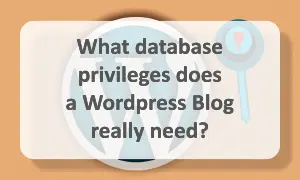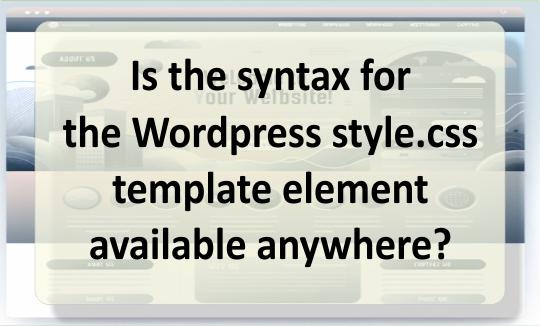How should a blog be structured to easily extract its data?

I'm currently using Wordpress to run my website. However, with each new release I become more concerned with software bloat and the convoluted table structures used to store my data. Maybe this is a fruitless pursuit. Features are always added to blogging software until it claims to be a CMS - and at that point your data is probably stuck.
4 Answers
You do have the option of sticking with the 2.0 branch. This will be maintained with just bug fixes until 2010.
I also sometimes worry about the large changes WordPress undergoes.
However, since all the important data (the posts themselves and the comments) are stored in a database, it does not seem difficult to extract them in case of need (moving to a different system, or just backup). Even if the table structure gets more complex, the MySQL DB WordPress uses is easy to access and extract data from.

I'm sure that it is easy to find such extractors freely floating in the web.
Wordpress has an 'export' feature. It downloads most of the data such as posts, pages and comments in an XML file. These XML files can be imported into other Wordpress installations.
You can also create a simple importer to import that data else where.
None of the previous answers have really addressed the title of this question.
How should the tables be constructed for a blog? That entirely depends on what you want to do with it, honestly.
One approach could be to have a posts table and a comments table. The posts table could have the title, content, date, and a post id. The comments table could have a post id, comment id, commenter note, and content.
But that's really only relevant if you're building it yourself. None of the blogging tools I have ever seen are very inefficient in terms of space usage, and all of them provide import tools from "standard" formats (from blogger, wordpress, moveabletype, etc to any where else). And don't forget that they will all publish posts and comments via RSS, which makes them eminently portable.
WordPress in particular is still only 1.2 MB as a tar.gz. If that's big enough to be concerned about bloat, I'd strongly suggest building one yourself, or moving to a hosted blogging platform
What database privileges does a Wordpress blog really need?
I am setting up a few Wordpress blog sites. I have created a user in mysql that wordpress will use to access its database. The docs say to give this user all privileges on the database. Does it really need full privileges? I expect not, so does anyone know the min set of privileges that it really needs? 3 Answers I'm no Wordpress expert, but I would recommend it does actually have all privileges apart from GRANT. It will need to be able to create tables and insert/update etc. Several plugins use their own tables, which they create on the fly if they do not exist. I grant: ALTER CREATE CREATE TEMPORARY TABLES DELETE DROP INDEX INSERT LOCK TABLES SELECT UPDATE Hope that helps anyone else that looks into this. grant select, insert, delete, update, create, drop, alter on myblog Best practices for running Wordpress on the same domain as Rails app What's the best way to run Wordpress on the same do…
Best practices for running Wordpress on the same domain as Rails app
What's the best way to run Wordpress on the same domain as a Rails application? I've got a standard Rails app with Nginx and Mongrel running at http _ mydomain. I need to run a Wordpress blog at http _ mydomain _ com _ blog. My preference would be to host the blog in Apache running on either the same server or a separate box but I don't want the user to see a different server in the URL. Is that possible and if not, what would you recommend to accomplish the goal? Actually, since you're using Nginx, you're already in great shape and don't need Apache. You can run PHP through fastcgi (there are examples of how to do this in the Nginx wiki)…
Is the Wordpress style.css template element syntax available?
I've recently embarked upon the grand voyage of Wordpress theming and I've been reading through the Wordpress documentation for how to write a theme. One thing I came across here was that the style.css file must contain a specific header in order to be used by the Wordpress engine. They give a brief example but I haven't been able to turn up any formal description of what must be in the style.css header portion. Does this exist on the Wordpress site? If it doesn't could we perhaps…


